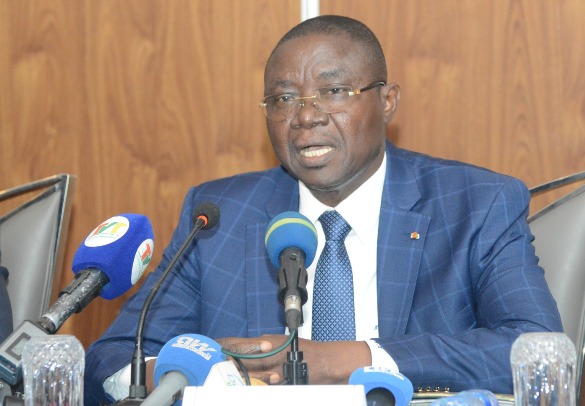The government of Togo has issued international arrest warrants targeting leaders of the M66 Citizens’ Movement, a collective of bloggers and activists who organised nationwide protests on 6th, 26th, 27th, and 28th June, 2025.
The movement had mobilised citizens to protest against the rising cost of living, the arrest of public commentators, and controversial constitutional reforms. Protesters also demanded the resignation of President Faure Gnassingbé, who was recently appointed President of the Council of Ministers following the country’s shift from a presidential to a parliamentary system.
At a press briefing held in Lomé on Wednesday, July 9, Togolese authorities confirmed the arrest warrants.
Minister for Security, Calixte Madjoulba, announced that investigations were actively underway to apprehend the organisers.
“Rest assured, investigations are ongoing. Arrest warrants have been issued. The countries where these individuals reside are urged to cooperate. Wherever they are, we will pursue them,” the minister declared in a stern tone.
Government officials accused the M66 movement, whose members are reportedly living abroad, of manipulating the public to incite unrest.
Colonel Hodabalo Anate, Minister of Territorial Administration, described the calls for protest as “acts of subversion” and likened them to terrorism.
“It is terrorism when you invite citizens to engage in gratuitous violence,” he stated, adding that unauthorised demonstrations cannot be deemed legitimate democratic expression.
Despite the government’s crackdown and a shutdown of certain social media platforms in recent days, opposition to the current administration continues to build.
The authorities have insisted that the local elections to elect mayors, scheduled for 17th July 2025, will proceed as planned, rejecting calls from opposition parties for a postponement.
Meanwhile, the M66 movement has called for renewed demonstrations on 16th and 17th July.
Some political analysts argue that the arrest warrants form part of a broader strategy to silence dissent.
“Rather than initiating dialogue with actors across the socio-political landscape, particularly the youth-led movements, the authorities are opting for suppression,” said Kao Atcholli, President of the Association of Torture Victims of Togo.
Civil society organisations have reported at least seven deaths and numerous arrests during the June protests, which were met with force by security personnel. In response to public outcry, the government has launched a judicial inquiry into the fatalities recorded during the demonstrations.
DISCLAIMER: The Views, Comments, Opinions, Contributions and Statements made by Readers and Contributors on this platform do not necessarily represent the views or policy of Multimedia Group Limited.
DISCLAIMER: The Views, Comments, Opinions, Contributions and Statements made by Readers and Contributors on this platform do not necessarily represent the views or policy of Multimedia Group Limited.


